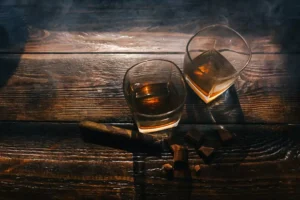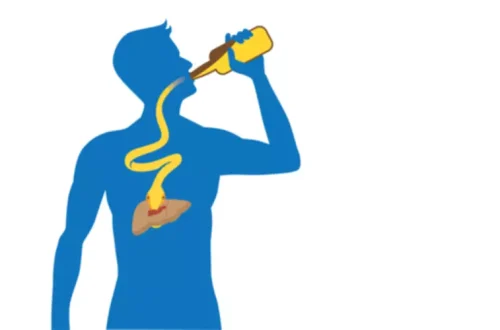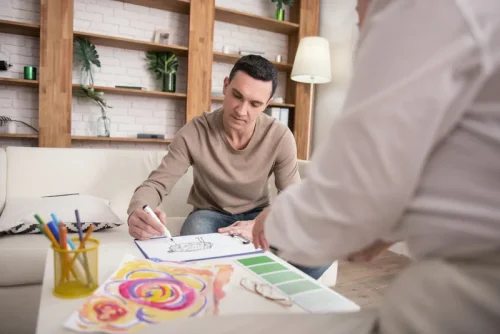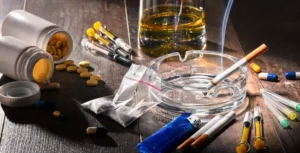
RISE users on iOS 1.202 and above can set up their avoid late alcohol reminder here. RISE can tell you when to do 20+ good sleep habits at the time that’ll make them most effective for you. Reach out to a treatment provider for free today for immediate assistance. As the alcohol in your system begins to wear off, something called “homeostatic recovery” can occur. In other cases, it’s caused by an uncomfortable sleeping environment, substance use, or shift work.
The Treatment of Co-Occurring Insomnia and Alcoholism

You may also experience a period of decreased energy at the same time every day, such as in the mid-afternoon. “Providing times for when to stop drinking alcohol, start winding down for bed, and my optimal wake-up and go-to-bed times have been so helpful…I think it’s helping me set a course to be more in control of my sleep and energy throughout the day.” Read the review. You can stop alcohol from disrupting your sleep by avoiding it at least three to four hours before bed and cutting down on how much you drink. Improving your overall sleep hygiene can help you fall asleep faster and wake up less often, too. For the casual drinker without clinical insomnia, you may find your sleep improves when you make some lifestyle changes — like drinking less, avoiding alcoholic drinks three to four hours before bed, and otherwise improving your sleep hygiene.
Physical Activity and Sleep
Drinks were converted into UK units of alcohol (whereby one unit is equivalent to 8 g of ethanol) using a conservative estimate of one UK unit for each measure of spirits and glass of wine, and two UK units for each pint of beer. These converted measurements were then summed to define the total weekly number of UK units consumed. Participants who did not drink alcohol in the past year were classified as ‘non-drinkers’.
Problems associated with drinking before bed
Vivid dreams and nightmares — With alcohol in your system you’re more likely to have intense, colorful dreams and nightmares as you sleep patterns ebb and flow. You may or may not remember them, but they can be lucid or give you a feeling that you are half awake and half asleep. Dr. Iatridis says it’s important to stop drinking at least four hours before bed to prevent sleep disruption. Sleep apnea is a common disorder where the airway collapses or becomes blocked during sleep. After a few hours of sleep, alcohol can cause you to wake up and have a difficult time going back to sleep. Participants were asked to report the number of alcoholic drinks they had consumed in the last 7 days.

Likewise, long-term reliance on alcohol for sleep can contribute to an alcohol use disorder (AUD). Drinking a small amount of alcohol may help people fall asleep more quickly initially, but over time, individuals will need to consume more alcohol to achieve the same effect. This article reviews the relationship between alcohol and insomnia, including how alcohol can affect sleep quality alongside the risks of poor sleep quality. It also considers ways to manage insomnia and prevent sleep disruption and answers some frequently asked questions. Circadian rhythms exist in every cell of your body, and alcohol disturbs body functions down to the cellular level while it is being metabolized.

Sensible Sleep Tips for Older Adults

In summary, insomnia is prevalent across all stages of AD and may have psychosocial, addiction and psychiatric ramifications. “Although some encouraging results have been seen with gabapentin, quetiapine and CBT-I, these findings alcohol insomnia need to be replicated using adequately powered studies in individuals with insomnia comorbid with alcohol dependence”. Because alcohol affects everyone differently, even a tiny amount of alcohol can lead to poor sleep quality.
- Drinking more alcohol or stronger alcoholic beverages will have a more significant impact on your sleep, with a sharper reduction in REM and deep sleep, leaving you feeling tired and groggy the following day.
- That’s right, the traditional “happy hour” time is actually when the body is most prepared to process that cocktail.
- It’s because I know what alcohol can do to sleep and healthy circadian rhythms.
- Sleep apnea is a common disorder where the airway collapses or becomes blocked during sleep.
- Alcohol is one of the most commonly used psychoactive substances in the community.
Adverse Effects of Disrupted Sleep
Binge drinking or excessive alcohol consumption is likely to negatively impact sleep more than light or moderate drinking. Because alcohol’s effects vary for each person, even small amounts can worsen sleep quality for some people. Generally, even healthy alcohol consumption can lead to poor sleep quality. In addition to the homeostatic drive, the normal sleep-wake cycle https://ecosoberhouse.com/ is also linked to an underlying circadian rhythm. The suprachiasmatic nucleus within the hypothalamus in the brain is the master clock that synchronizes a host of internal rhythms with the sleep-wake cycle being one of them. Light is the primary stimulus involved in synchronizing an organism’s internal rhythm in the circadian clock with the external environment.
Snoring and Sleep Apnea

RISE can tell you when to do 20+ sleep hygiene habits at the right time for your body clock to make them even more effective. Alcohol can dehydrate you and dehydration has been linked with short sleep duration. According to the Centers for Disease Control and Prevention (CDC), men should keep alcohol intake to two drinks a day or less and women stick to one drink or less. RISE can send you a personalized reminder for when to stop drinking each night.
Health Categories to Explore
- There is a lack of evidence that alcohol consumption is a trigger for sleepwalking (Pressman et al., 2007), although it has been linked epidemiologically to night terrors, which is another parasomnia (Ohayon et al., 1999).
- Depending on how much alcohol is consumed, however, what seems like falling asleep may be something closer to passing out.
- Withdrawal symptoms are a whole different world than alcohol-induced sleep problems.
- People with alcohol use disorder experience insomnia at higher rates than those who don’t abuse alcohol.
